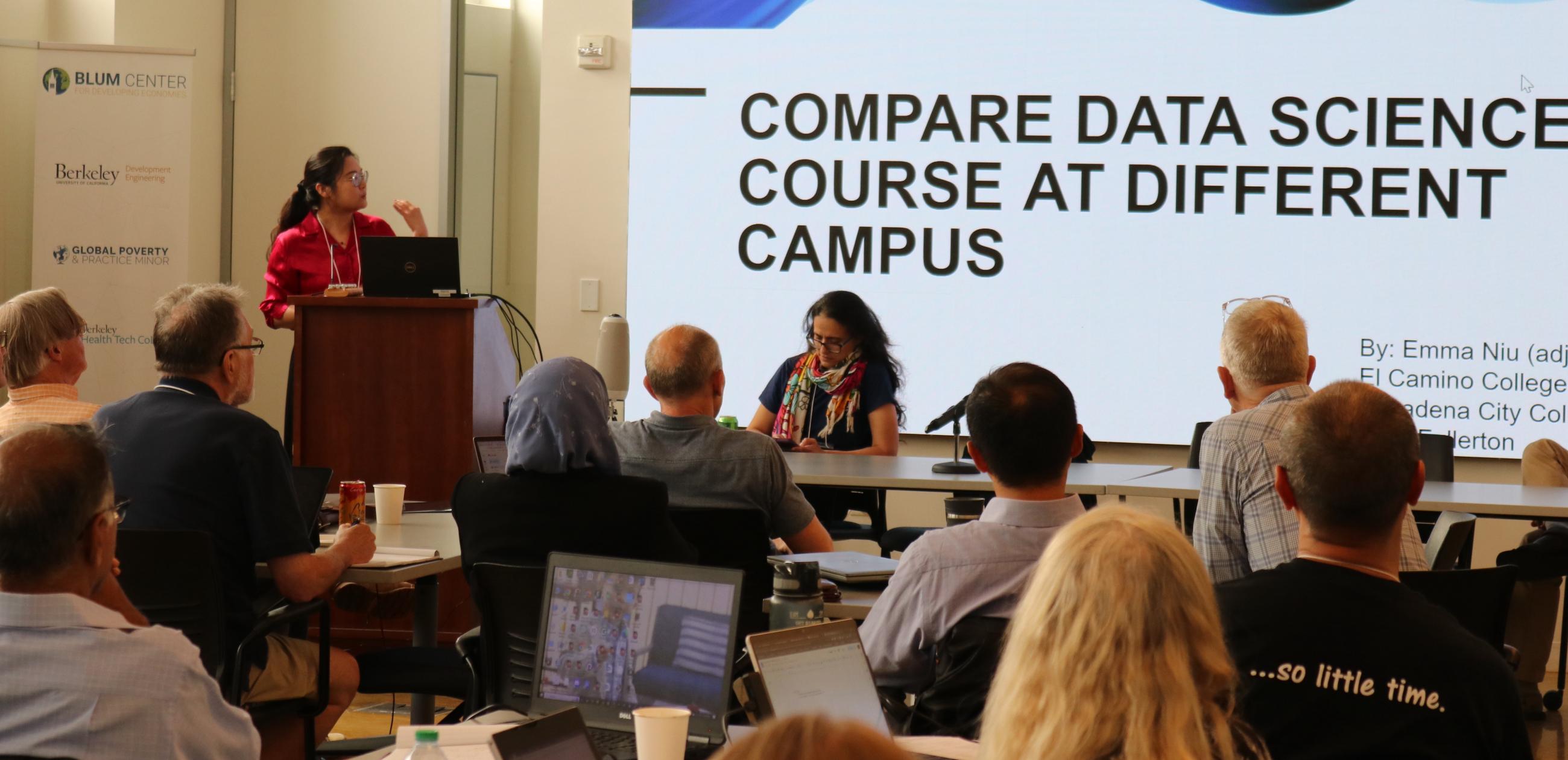UC Berkeley to Launch First-Of-Its-Kind Compute Hub

UC Berkeley experts received a $1.5 million grant from the California Education Learning Lab (Learning Lab) to launch a first-of-its-kind computing technology hub for the state’s public colleges and universities.
The hub will provide access to students across the state to course materials built on the JupyterHub platform, a cloud-based, open-source system widely used in scientific and industrial workplaces. It will be staffed and run by Berkeley for several California higher education institutions, saving money, aligning curricula and facilitating transfer pathways for STEM students.
“This approach ensures that the data science education we provide across California prepares students really well by using the same technology and tools that they'll use in future endeavors,” said John DeNero, a co-principal investigator on the grant and faculty director of Berkeley’s Data Science Undergraduate Studies program.

Matthew Sherburne, assistant dean of international partnerships for the College of Engineering, is a co-principal investigator on the grant. DeNero is also an associate teaching professor in the Department of Electrical Engineering and Computer Sciences, which is shared by the College of Computing, Data Science, and Society (CDSS) and the College of Engineering.
This three-year grant awarded this month by Learning Lab, a state-funded grantmaking organization, builds on past Berkeley and California efforts to improve data science education equity and outcomes. This platform is modeled after the Canadian cloud-based platforms Syzygy and Callysto, which have similar audiences, goals or online environments.
The principal investigators expect this hub, dubbed the California Interactive Computing Open Resource, to support more than 5,000 students across California by fall 2027. They said this infrastructure could eventually reach more than 50,000 students and transform learning experiences across STEM fields.

The Berkeley team will build the computing open resource platform on the JupyterHub system. It will initially house class materials, including Jupyter notebooks, for modules in courses from earth systems science to computer science that show how data science techniques can be applied to those subjects.
These notebooks allow students to tackle problems like complicated data visualizations and data management regardless of their computer’s power. It also eliminates the need for complex software setups. The team will empower educators through training, tools and other technology support to use and customize these courses for their students and to contribute their own courses to the platform.
“Ensuring open and equitable access to learning opportunities is a guiding principle at Berkeley. It’s also at the core of this effort,” said Sherburne, who is also a lecturer in the Department of Materials Science and Engineering. “By housing the hub at Berkeley, we can leverage the technical expertise in both colleges to help students across California access data science course content sustainably and equitably.”
This platform, which four staff members from CDSS and the College of Engineering will help develop and support, will take shape quickly. San Jose State University, the City College of San Francisco, Santa Barbara City College, and California State University, Long Beach may be able to use it as early as this spring.
“Eventually, we hope that every California community college, CSU, or UC that wants to be part of the hub can join,” said Lark Park, the Learning Lab’s director. “This could be a great model for how shared teaching technology, tools, and resources can support both faculty and students in California.”
The team will encourage engagement through existing higher education networks like the California Alliance for Data Science Education and the California Engineering Liaison Council. They will also share about their progress using the JupyterHub system for education and related developments with these stakeholders.
